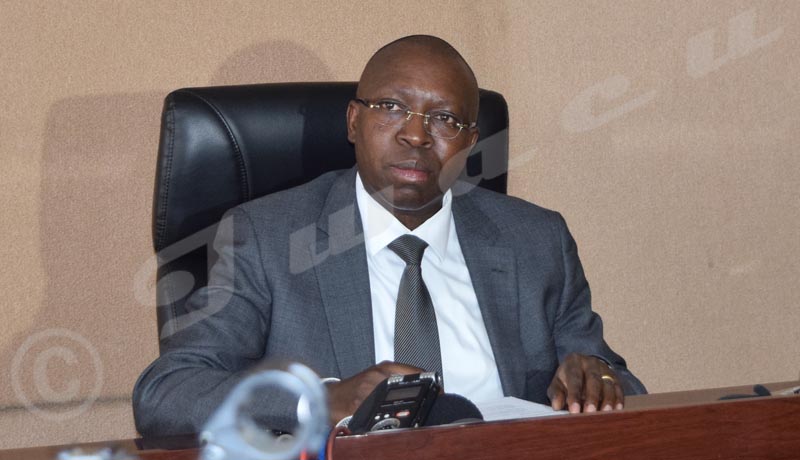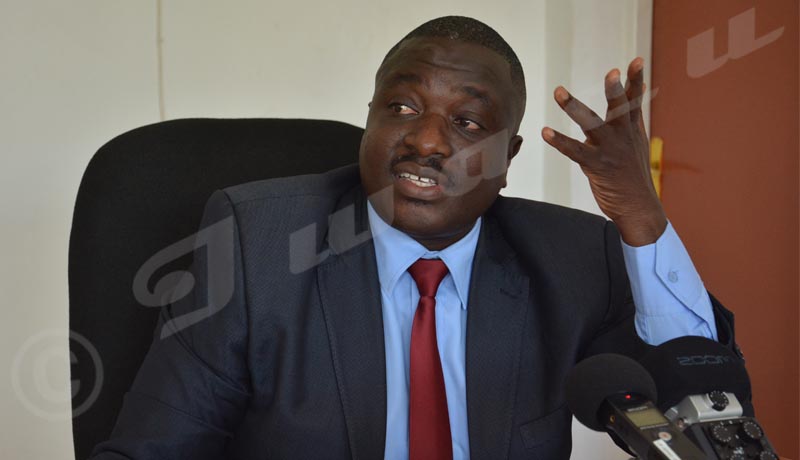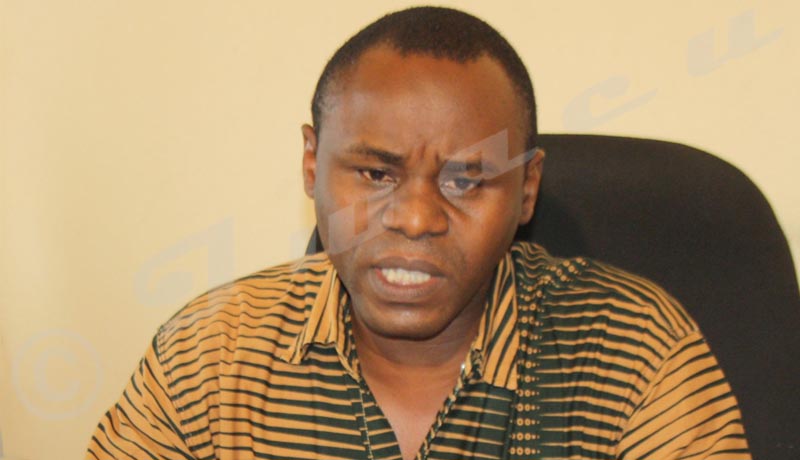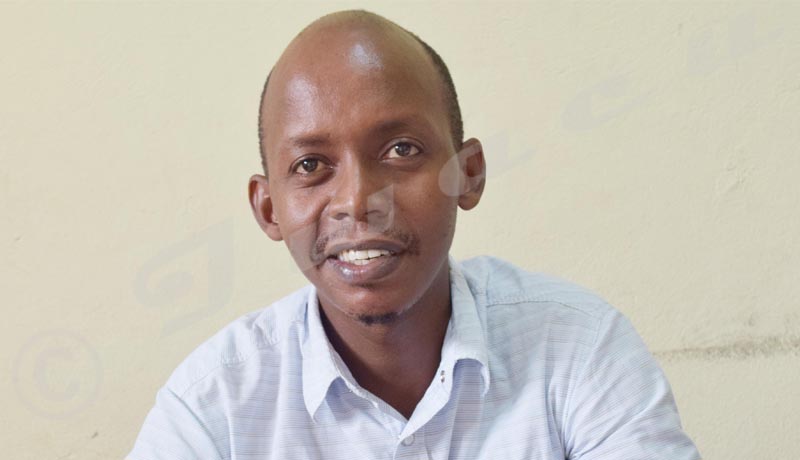The foreign currency stock keeps tumbling down. The Burundi National Bank-BRB explains that this decrease is caused by the decrease in external donations. According to an expert, the current level of currencies reveals that the country’s economy is in danger. He calls on the state to ask for an emergency loan.

Jean Ciza: “Official reserves decreased by 10.9% and covered 1.0 against 1.7 months of imports of goods and services in 2017.”
“The official reserves decreased by 10.9% and covered 1.0 against 1.7 month of imports of goods and services in 2017,” reads the 2018 annual report published on November 22, 2019.
Official reserves are the stock of foreign currency accumulated by the central bank, in cash, bonds and financial assets. In this report, the BRB does not reveal the composition of these reserves.
This publication shows that the currency stock has broken a new record. Foreign currencies remain at a critical level that was never reached for a long time. From 2014 until 2018, foreign currency reserves shrank by more than three quarters: from 317.3 to 70 million US dollars.
According to Jean Ciza, governor of Burundi National Bank, this low level of foreign currency reserves is mainly linked on the one hand to the suspension of current donations and to the decrease in capital donations from external partners on the other hand.
From 2017 to 2018, he explains, external capital support fell by 27.6%, going from BIF 292.8 billion to BIF 211.8 billion. Of the BIF 372,250.6 million planned, disbursements of these donations were made up to 56.9%.
This is added to a chronic trade deficit. Imports increased at 7.6% while exports decreased at 7.4% in 2018.
For him, this drop in foreign exchange reserves is a common characteristic of the EAC countries which have not reached the convergence criterion, i.e. 4.5 months of imports, with the exception of Rwanda and Tanzania.
The currency stock is alarming

Faustin Ndikumana: “The national economy is in danger. No development project can be carried out.”
According to Faustin Ndikumana, an economic expert, this decrease in foreign exchange reserves is the normal result of the gap between the activities that generate foreign currency earnings for the country and the foreign currency outflows necessary for imports.
For this economist, this continual and unrestrained tumble shows that the policies initiated by the BRB have had no effect. He recalls that by the Public Finance Law for the 2016 financial year, the State withdrew the management of foreign currency accounts of non-governmental organizations from commercial banks.
Article 14 of this law stipulates that all foreign currency accounts of government entities and projects and those of NGOs receiving external aid must be opened at the BRB. In addition, this article also concerns mining companies and cooperatives. The latter must open foreign currency accounts at BRB level to repatriate mining revenues.
This expert deplores the fact that the stocks of foreign currencies have not stopped falling despite these measures. “Solutions should be found elsewhere,” he concludes.
According to Faustin Ndikumana, the foreign currency reserves reveal that the country is in a very worrying and difficult situation. This is proof that the country is in a fragile and delicate economic situation.
Everyone knows that foreign currency reserves are vital for the economy. Without the adequate stock, Burundi would be unable to carry out its daily operations, namely the importation and payment of external debts, he adds.
Mr. Ndikumana goes further. With this low import capacity, the country faces a high risk. At any time, it may find itself in a situation of insolvency “The national economy is in danger. No development project can be carried out.”
Furthermore, these foreign exchange reserves show that the government cannot carry out its 2018-2027 national development plan. The country is unable to import the raw materials necessary to implement this big project.
To save the country, Faustin Ndikumana calls on the Ministry of Finance to intervene quickly. “All it takes is requesting an emergency loan to replenish the foreign exchange stock.” This would make it possible for investors to have sufficient foreign currencies to import.
Finally, the state must initiate policies aimed at promoting exports and attracting foreign direct investment.
The decline continues
Since 2018, the indicators of the national economy have not remained static. According to available data from the central banks, the foreign exchange stock reduces every three months. According to the March 2019 report, the situation has worsened.
Official reserves fell at20.1% in the previous three months, i.e. from 70.25 billion US dollars to 56.13 billion USD. They fell by 22.2% and covered 0.7 against 1.0 month of imports of goods and services in the same quarter of 2018 while the floor level is fixed at 4.5 months in the convergence criteria of the EAC.
According to this report, in the first quarter of 2019, the trade balance was also characterized by the widening of the trade balance deficit. It stood at 328.3 against BIF 253.09 billion in the last quarter of last year. The report also clarifies that exports decreased by BIF 39.53 billion while the increase in imports amounted to BIF 35.68 billion.
Since 2016, BRB has been reassuring, but the foreign exchange reserves have fallen. Since then, these same reserves have never been able to return to the same level.
For the moment, the currencies are at an alarming threshold: 0.7 month of imports. The national economy is at a turning point.
The exchange reserves fell by about $ 14.12 million between January and April this year, or in three months. For some, the reserves run out in the first quarter of next year.
Analysis by Pierre Claver Banyankiye
The urgency to save the economy
In economy,it’s never possible to make up for a delay. To get out of this situation, the monetary authorities must take emergency measures to avoid reliving the same scenario of previous years, marked by recourse to the IMF, with the threat of cessation of payment. Such a scenario will have a direct impact on the value of the BIF. This is supported by reserves, growth and the trade balance. If one of these three elements is destabilized, the value in BIF is affected.
Furthermore, all of these pillars are showing bad signals. The import coverage rate is close to zero. Economic growth is stagnating. The trade balance is still in deficit. If the situation does not improve, recourse to external debt will be inevitable.
Prevention is better than cure. It is preferable that the authorities borrow money on the international financial market before the depletion of its reserves. For the moment, we doubt that the country is in a position of strength to negotiate.
Public debt
Risk of bankruptcy?
Public debt continues to increase, according to the 2018 report of Burundi national bank (BRB). According to an economist, this situation is worrying. A local corruption watchdog speaks of a risk of bankruptcy.

Gabriel Rufyiri: “There is a serious risk of falling into bankruptcy if we are not already in it.”
“The public debt increased by 13.5%, going from BIF 2,426.1 billion to BIF 2,753.5 billion. This increase concerned both domestic debt (+ 17.6%) and external debt (+ 4.8%). The total public debt represents 45.8% in 2018, compared to 43.6% in 2017,” said the BRB in its annual report, 2018 financial year.
According to BRB, the stock of domestic debt increased by 17.6%, going from BIF1.647.8 billion to 1.937.8 billion BIF. “This increase is particularly linked to the increase in government liabilities to commercial banks, leading to BIF 277.06 billion.”
On the other hand, it continues, the State’s liabilities to the Central Bank fell by BIF 15.09 billion.
As for the external debt, it increased by 4.8%, moving from BIF 778,292.4 billion to 815,659.1 billion BIF from one year to another. “This increase was the result of drawings on external loans of BIF 41.2 billion and revaluation gains of BIF 8.05 billion which offset the amortization of debt by BIF 11.9 billion”.
According to BRB, the new drawings focused on direct debt from OPEC (BIF 11.6 billion), BADEA (BIF 7.4 billion), EXIM BANK (3.3 billion BIF), the Kuwait Fund (BIF 12.4 billion) and the Saudian Fund (BIF 6.6 billion). “This funding was directed towards the road sector (BIF 30.5 billion), agricultural and livestock development projects (BIF 6.8 billion) and various projects, mainly in the field of mines and energy (BIF 3.9 billion)”. He added that the external debt mainly financed public facilities (47.8%), various projects (26.4%), the productive sectors (18.9%) and the social sectors (6.9%).
A catastrophic situation
“Burundi is between the devil and the deep blue sea in economic matters because the debt situation today is very worrying,” says Gabriel Rufyiri, president of OLUCOME, a local corruption watchdog. He said his organization had already sounded the bell in 2016 when the debt hovered around BIF 700 billion. “It continues to grow year after year in an extraordinary way. This year, the debt has just reached a record never reached in the history of Burundi.”
According to Gabriel Rufyiri, public revenues which hover around BIF 800 billion cannot finance the payment of salaries and the services that the government is called on to offer to its citizens. “All of this proves that we are in a very serious situation. This debt of BIF 2,753 billion is almost twice the national budget because budget forecasts hover around BIF 1,500 billion.”
Huge consequences….

Prosper Niyoboke: “The soaring domestic debt shows that the private sector is suffering.”
Prosper Niyoboke, a Lecturer at Université du Lac Tanganyika, said that the increase in domestic debt was caused on the one hand by the poor allocation of public resources. On the other hand, he adds, the lack of rigor in the management of the budget and public finances largely explains the disproportionate increase in debt. “The soaring domestic debt shows that the private sector is suffering.”
According to him, on the one hand, the State cannot pay for all the goods and services consumed. On the other hand, it does not fully repay loans made in the financial sector. As a result, unpaid invoices hamper the activities of supplying companies. For lack of sufficient financial means, some fail to obtain raw materials. This results in lower production and lower income. Often times, they are forced to reduce staff.
According to the economist, these companies are also under pressure from their lenders because they struggle to reimburse the loans they requested. “For those that fail to hold on, they risk closing. As a result, their employees will lose their jobs. Suddenly, there is a risk of a slowdown in economic activity and the reduction in public revenues will follow.”
For Gabriel Rufyiri, these debts are undue especially that they will not generate interest. “We must not live beyond our means.” He notes several consequences for the economy. According to him, the Burundian economy cannot recover with a debt situation at this level. He indicates that imports are likely to stop and that no important project at the social level can be carried out be it at the level of education, health, culture, etc. “There is a serious risk of falling into bankruptcy if we are not already in it. In some countries, it is even a serious offense for state leaders.”
… .But there are possible solutions
“Political stabilization is the basis of everything, of course with the democratization of the country. Burundi’s partners must have confidence in the current government. It is also necessary to reassure foreign investors so that they bring in currencies,” suggests Gabriel Rufyiri. In addition, he adds, it is necessary to invest in the agriculture sector especially in industrial crops such as tea, coffee and cotton as well as in the energy and mining sector.
For him, incentives for the private sector are needed. “Internal or external debt or currency devaluation are measures which unfortunately jeopardize the future of the coming generations.”
For him, it is necessary to break with these kinds of shortcuts to resort to investment in order to increase production.
“There are several possible solutions, but since our politicians have their heads elsewhere, no one makes any effort to exploit them. The situation has become catastrophic because the corrupt people have taken the lead.”
To get out of this, Mr. Niyoboke suggests the State leaders to identify and eliminate all unproductive charges increasing the State budget. He also calls for the creation of a public debt fund that can regularly repay debt arrears.
Story originally written by Fabrice Manirakiza and Pierre Claver Banyankiye


















 IWACU Open Data
IWACU Open Data

